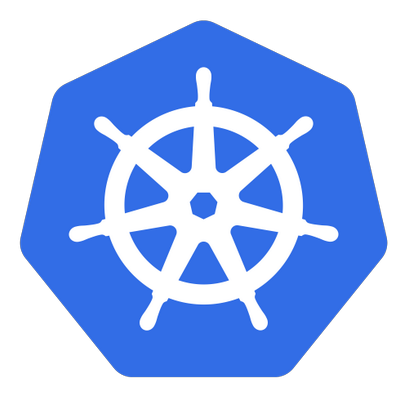theme: OCI White slidenumbers: false [.hide-footer]
- Graeme Rocher
- Creator of Grails and Micronaut
- Principal Engineer at Object Computing
- Oracle Groundbreaker Award Winner
- Based in Pais Vasco
- Challenges Facing Java and Software in General
- Microservces and Serverless vs. Traditional Models
- Micronaut Demos!
- Q & A!
- Challenges to using Java in Serverless / Microservices scenarios
- Existing Tools and Frameworks Not Optimized for Cold Starts / Low Memory
- Go, Node etc. better in this regards
- Tim Bray (Amazon/AWS) and others not recommending Java
- Optimize for cold starts
- Forget about connection pools
- Don't bother with local caches
- Choose technology based on your cold start requirements
- Cold starts less important, but still important
- The Container is the deployment unit
- Containers and Java require special memory management
- Optimization for memory usage required
[.hide-footer]
Spring is an amazing technical achievement and does so many things, but does them at runtime.
- Reads the byte code of every bean it finds
- Synthesizes new annotations for each annotation on each bean method, constructor, field etc. to support Annotation metadata
- Builds Reflective Metadata for each bean for every method, constructor, field etc.
- Tough technology decisions ahead
- Choose appropriately tool for the job
- Traditional frameworks often not the best choice
[.hide-footer]
- Frameworks based on reflection and annotations become fat
- But we love the programming model and productivity so we live with it
- So ... why should we be more efficient?
[.hide-footer]
[.hide-footer]
- Limited Annotation API
- Type Erasure
- Slow Reflection
- Reflective Data Caches
- Classpath Scanning
- Slow Dynamic Class Loading
- Today the JDK is OpenJDK!
- Just take a look...
- All Reflective data initialized on first access and held in soft references (yes every field, method etc.)
- Won't be GC'ed until your application is low on memory!
- Greatly Exaggerated (Java has been dead forever)
- Java can be Fast! (see Android and Micronaut)
- However Most Existing Tools are based around
- Reflection
- Runtime Proxies
- Runtime Byte Code Generation (bytebuddy/cglib/javassist)
- Mature, Robust Ecosystem
- Outstanding IDEs
- Code Maintenance and Refactoring
- Developer Availability
- Build System Maturity
- Diversity (Mobile, IoT, Server Side)
- Languages (Java, Kotlin, Groovy, Scala)
- The Android Community already solved the problem
- Ahead of Time Compilation used extensively
- Google Dagger 2.x
- Compile Time Dependency Injector
- Reflection Free
- Limited in Scope to just DI
- So what is Ahead of Time (AOT) compilation?
- Pre-computation of application code using closed world static analysis
- Fancy way of saying do more at compilation time and less at runtime
[.hide-footer]
- A Microservices and Serverless Focused framework (hence the branding)
- Also a Complete Application Framework for any type of Application
- Dependency Injection, Aspect Oriented Programming (AOP), Configuration Management, Bean Introspection and more..
- All Dependency & Configuration Injection
- Annotation Metadata (Meta annotations)
- AOP Proxies
- Essentially all framework infrastructure
- ie. What Spring/CDI do at runtime
- Microservices
- Serverless Applications
- Message-Driven Applications with Kafka/Rabbit
- CLI Applications
- Even Android Applications
- Anything with
static void main(String..args)
- An Application Framework for the Future
- Reflection Free, Runtime Proxy Free, No Dynamic Classloading
- Ahead of Time (AOT) Compilation AOT APIs
- ... oh and let's you build Microservices
- We announced Micronaut on March 2018
- Open Sourced 28th of May 2018 (a year ago!)
- Sparked industry wide improvements from Red Hat (with Quarkus) and Pivotal (Spring Boot 2.2)
- Micronaut is changing the face of server side Java
- A New Universal Virtual Machine from Oracle
- Features a
native-imageTool- Converts Java -> native machine code using AOT
- Works well with Micronaut
- Startup time 20ms and Memory Consumption 18MB!
[.hide-footer]
@Controller
class HelloController {
@Get("/hello/{name}")
String hello(String name) {
return "Hello " + name;
}
}
@Client("/") // Client Generated at Compile Time
interface HelloClient {
@Get("/hello/{name}")
String hello(String name);
}[.hide-footer]
- Smallest Micronaut Hello World JAR is 12MB when written Java or 14MB in Groovy
- Can be run with as little as 10mb Max Heap with Kotlin or Java (20mb for Groovy)
- Startup time subsecond for Kotlin or Java (a little more for Groovy)
- All Dependency Injection, AOP and Proxy generation happens at compile time
| Style | Cold Start | Memory |
|---|---|---|
| OpenJDK | +/- 800ms | +/- 100mb |
| Eclipse OpenJ9 with Class Sharing | +/- 300ms | +/- 70mb |
| Graal Native | +/- 15ms | +/- 15mb |
| Style | Cold Start |
|---|---|
| Simple Function | +/- 300ms |
| API Gateway | +/- 800ms |
| API Gateway + Graal Custom Runtime | +/- 150ms |
- Compile Time DI & AOP
- HTTP Client & Server
- GRPC and GraphQL Support
- RabbitMQ and Improved Kafka Support
- Micronaut 1.1.2 supports GraalVM 19 native (experimental status)
- ~2 years of development by several OCI engineers.
- 128 contributors (19 from OCI).
- ~2350 stars on GitHub.
- ~6000 commits.
- More Exciting Announcements in 2019
- Made in Spain (partly ;-)
- Gitter Community: https://gitter.im/micronautfw
- User Guide: http://micronaut.io/documentation.html
- Micronaut Guides: http://guides.micronaut.io
- FAQ: http://micronaut.io/faq.html
- Github: https://github.com/micronaut-projects/micronaut-core
- Examples: https://github.com/micronaut-projects/micronaut-examples
- Micronaut and GraalVM are leading the AOT revolution
- Server Side Java is Adapting to the Serverless world
- Building more efficient applications possible with right framework choices
- AOT Sacrifices Compilation Speed to Gain so Much More
- Going native an option for the future with GraalVM
















